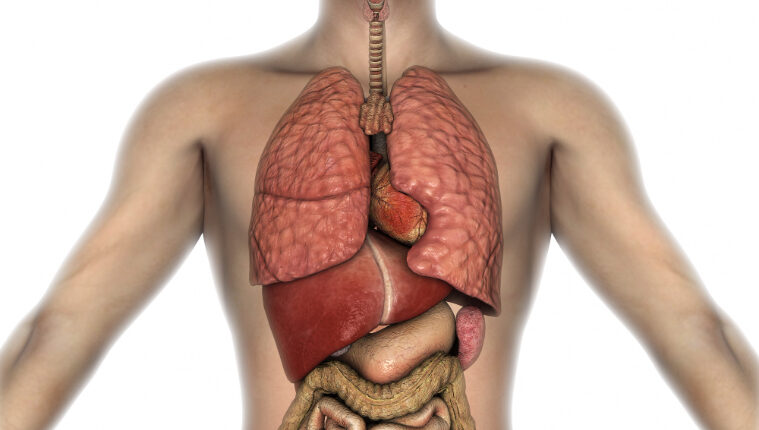Your digestive system plays a crucial role in overall health, and one key component to maintaining a healthy gut is the presence of beneficial bacteria. These “good” bacteria, also known as probiotics, help maintain a balanced gut microbiome, which affects everything from digestion to immunity. In this blog, we’ll explore the benefits of healthy bacteria for your digestive system, how they work, and the best ways to boost your gut health.
What Are Healthy Bacteria?
Healthy bacteria are microorganisms that live in your intestines and promote digestive health. These bacteria, primarily found in your gut, assist with breaking down food, absorbing nutrients, and protecting the body against harmful invaders like bad bacteria and toxins. They play a pivotal role in maintaining a healthy balance of microbes, known as the gut microbiome.
Your gut microbiome contains trillions of bacteria, fungi, viruses, and other microorganisms. When this balance is disrupted, it can lead to digestive issues, a weakened immune system, and other health problems. That’s why it’s essential to support the growth of healthy bacteria in your digestive system.
Benefits of Healthy Bacteria for Digestive Health
1. Improved Digestion
One of the primary roles of healthy gut bacteria is to aid in food digestion. These bacteria help break down complex carbohydrates, proteins, and fats, making it easier for your body to absorb nutrients. For example, they help break down fiber, which can be difficult to digest on its own. By enhancing digestion, healthy bacteria can help reduce symptoms like bloating, gas, and indigestion.
2. Stronger Immune System
Healthy gut bacteria stimulate the immune system and help prevent the growth of harmful pathogens. A balanced microbiome helps the body fight infections, regulate inflammation, and boost overall immunity. When the gut bacteria thrive, you are less likely to experience illness and inflammation.
3. Support for Mental Health
Recent studies have highlighted the connection between gut health and mental well-being, often called the gut-brain axis. Healthy gut bacteria produce neurotransmitters like serotonin, which regulate mood, sleep, and stress levels. An imbalanced microbiome has been linked to mood disorders such as anxiety and depression, further proving the importance of a healthy gut for mental health.
4. Prevention of Digestive Disorders
An imbalance of gut bacteria, also known as dysbiosis, can contribute to the development of digestive disorders like irritable bowel syndrome (IBS), inflammatory bowel disease (IBD), and leaky gut syndrome. Probiotics, or healthy bacteria, help restore balance in the gut and may relieve symptoms of these conditions by reducing inflammation, enhancing the gut lining, and restoring normal digestive function.
5. Weight Management
Studies suggest that certain strains of probiotics may help regulate fat storage and metabolism. By improving digestion and nutrient absorption, these bacteria may help reduce the risk of obesity and promote a healthy weight.

How to Boost Healthy Bacteria in Your Gut
Maintaining a healthy balance of gut bacteria is essential for good digestive health, but how can you encourage the growth of these beneficial microorganisms? Here are some tips:
1. Eat Probiotic-Rich Foods
Consuming foods that contain live beneficial bacteria is one of the easiest ways to introduce healthy bacteria into your digestive system. This includes:
- Yogurt: Look for yogurt that contains live cultures, such as Lactobacillus and Bifidobacterium.
- Kefir: A fermented dairy product similar to yogurt but with a broader range of probiotic strains.
- Sauerkraut and Kimchi: Fermented vegetables like cabbage provide natural probiotics and fiber.
- Miso and Tempeh: Fermented soybean products that are rich in probiotics.
- Kombucha: A fermented tea that contains beneficial bacteria and yeasts.
2. Incorporate Prebiotics
Eating prebiotic-rich foods helps probiotics thrive in your gut. Some great prebiotic foods include:
- Bananas
- Garlic
- Onions
- Asparagus
- Oats
3. Take Probiotic Supplements
Look for a supplement that contains a variety of bacterial strains, including Lactobacillus and Bifidobacterium, which are two of the most well-researched strains for digestive health.
4. Avoid Excessive Antibiotics
While antibiotics are sometimes necessary, they can wipe out harmful and beneficial bacteria in your gut. If you need to take antibiotics, consider supplementing with probiotics to help restore your gut’s bacterial balance.
5. Reduce Stress
Chronic stress can negatively impact your gut bacteria and weaken your digestive health. Incorporating stress-reducing activities like exercise, meditation, and getting enough sleep can help keep your gut bacteria balanced.
Conclusion
Healthy bacteria are essential for maintaining a strong digestive system and overall well-being. By making simple changes to your diet, lifestyle, and habits, you can boost the beneficial bacteria in your gut, leading to improved digestion, a stronger immune system, and even better mental health. Whether through probiotic-rich foods or supplements, supporting the growth of healthy bacteria is a key step toward achieving optimal gut health.









